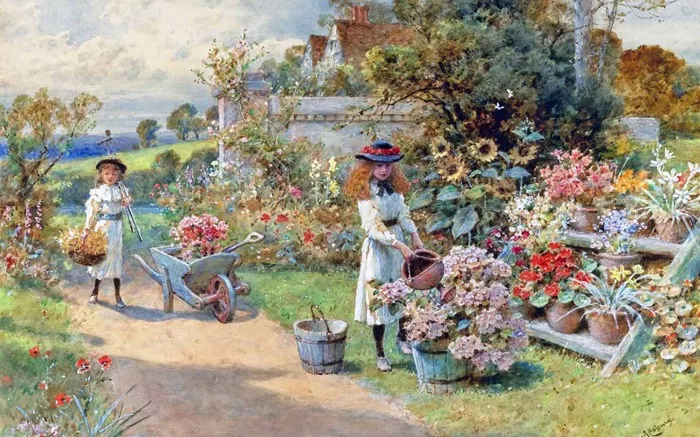Welcome to Poem of the Day – A Flower Garden at Coleorton Hall, Leicestershire by William Wordsworth
William Wordsworth, one of the leading figures of English Romantic poetry, often celebrated nature, memory, and the power of the human spirit. In A Flower Garden at Coleorton Hall, Leicestershire, Wordsworth combines all three of these themes. This poem was written during Wordsworth’s visit to Coleorton Hall, the residence of his friend Sir George Beaumont. The poem is a tribute to both the beauty of the garden and the deeper emotional and spiritual meaning it holds.
This article offers a simple and clear explanation of the poem. It breaks down the meaning of the verses and helps readers understand the poetic devices and ideas Wordsworth uses.
A Flower Garden at Coleorton Hall, Leicestershire Explanation
Background to the Poem
Coleorton Hall is located in Leicestershire, England. In the early 1800s, Sir George Beaumont invited Wordsworth and his family to stay there. During this time, Beaumont planted a flower garden for Wordsworth’s wife, Mary. The garden became a symbol of friendship, love, and memory.
Wordsworth’s poem reflects on this peaceful and beautiful place. He uses the garden to explore themes of nature, time, and human emotion.
Structure and Language
The poem is written in simple, lyrical language. Wordsworth uses plain yet rich vocabulary. His style is calm and thoughtful. The poem flows like a quiet walk through a garden.
The tone of the poem is gentle. Wordsworth uses many natural images such as flowers, sunshine, trees, and birds. These images help paint a peaceful and serene picture in the reader’s mind.
Line-by-Line Explanation
Opening Lines: The Joy of Nature
Wordsworth begins the poem by describing the garden with admiration. He speaks of the blooming flowers and the light that falls gently on them. These opening lines reflect joy and appreciation for the beauty around him.
He sees the flowers not just as pretty objects but as living things with their own spirit. This shows Wordsworth’s deep connection to nature.
Middle Section: Memory and Reflection
As the poem moves forward, Wordsworth starts thinking more deeply. The flowers remind him of times past. He thinks of loved ones and the peaceful moments they shared.
He speaks of “silent thoughts,” which shows how the garden brings him a quiet kind of happiness. He also talks about the “presence” of those who are no longer there. This could mean friends who have died or loved ones who are far away. But in the garden, their memory feels alive.
Final Lines: Hope and Continuity
In the last part of the poem, Wordsworth looks toward the future. He hopes the garden will continue to bring joy to others. He speaks of it as a place of rest and reflection for future generations.
The poem ends with a calm sense of peace. Nature continues, flowers bloom again, and memories live on in beautiful places like this garden.
Themes in the Poem
1. Nature as a Spiritual Guide
Wordsworth saw nature as a teacher and healer. In this poem, the garden is a sacred place. It connects the poet to his feelings and to the people he loves.
2. Memory and Time
The flowers in the garden remind Wordsworth of the past. He reflects on how memories can live in natural places. This makes the garden more than just a place of beauty—it becomes a place of remembrance.
3. Friendship and Love
The garden was planted by a friend. It is a symbol of care and thoughtfulness. Wordsworth uses it to speak about the strength of personal bonds.
Poetic Devices Used
-
Imagery: Wordsworth uses rich visual images to describe the flowers and the light. This helps the reader imagine the garden clearly.
-
Personification: The flowers seem to have emotions and life. This adds depth to the poem.
-
Tone: The soft and reflective tone creates a peaceful mood throughout the poem.
-
Symbolism: The garden is a symbol of love, memory, and the beauty of nature.
Conclusion
A Flower Garden at Coleorton Hall, Leicestershire is a gentle and touching poem. It shows how a simple garden can hold deep meaning. Through beautiful and simple language, Wordsworth shares his thoughts on nature, memory, and love.
The poem reminds us that in quiet places, we can feel connected to the past and find peace in the present. It is a perfect example of Romantic poetry, where emotion, nature, and reflection come together in harmony.

